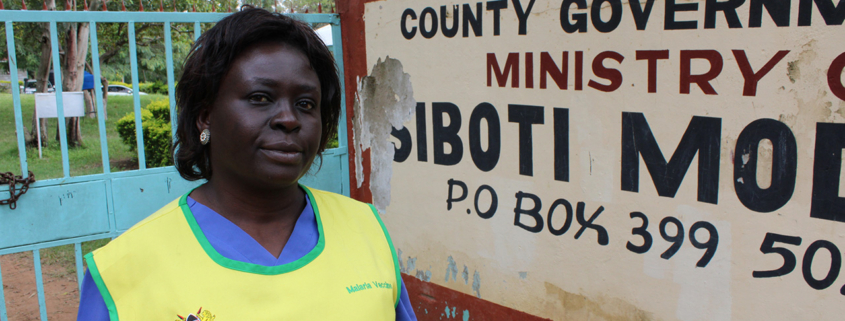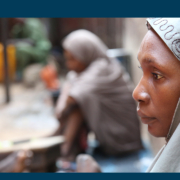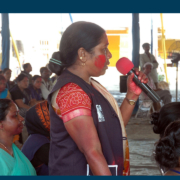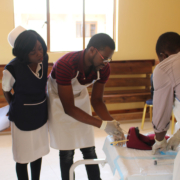Elevating Client-Provider Relationships: Transformative Insights from Fishbowl Sessions in Bungoma County
A long way from Siboti Health Centre, in Bungoma County, stands a simple church in the village of Sirende with one room encompassing only concrete floors, walls, and a tin roof. Today, the church held about 30 women, some of them older, some of them very young. These women, however, were not attending church services. On the agenda today is the mothers’ grievances about their health center and any improvements that have happened since then.
One year ago, these women met with the health center staff. Through a fishbowl discussion—a technique Breakthrough ACTION uses to connect health facilities with the community they serve to start a two-way conversation between them—these women came to weigh in on the services offered in the maternity wing of the facility.
“When the Breakthrough ACTION team came on board, that is, when we started having the community discussions, Breakthrough ACTION came and helped mobilize the community to speak up without fear of victimization.” Catherine Matingi Wambakata, the Facility-in-Charge for Siboti Health Centre, said.
The first discussion was long and fruitful with the mothers in attendance having much to say. Mothers brought up issues like long wait times; the unhygienic standards of the floors, walls, and washrooms of their local health center; and, even more concerning, reports that the staff were disrespectful, rude, and abusive. Finally, they acknowledged that traveling to and from the health center was challenging due to its distance from the village.
“It was not easy because you were seated, and there [were] these comments coming. When you are leading people you think people are doing well, but when you hear these complaints, you realize that may not be true,” Catherine said of the experience in the first round of fishbowl discussions. “We felt we were just having stones thrown [at] us, but then you realize it’s good to hear this feedback,” she said.
Prior to that first session’s conclusion, the health center staff got their turn to share feedback with the mothers. Catherine explained that staff members were often overworked, felt underappreciated, and struggled with limited funding and resources.
Soon after the fishbowl session, Catherine and her team met to debrief. “We sat down with the staff, and we shared the learnings from the community. We now understood […] is how we are being perceived,” she said. Moving forward, Catherine and her team wanted to improve community perceptions of the facilities, which impacted their ability to deliver services and keep their community healthy.
Now, a year later, the women returned to meet with the health center staff and see what has changed. After an opening prayer, Alice, a community health promoter, greeted and introduced participants before she reviewed the complaints they heard and detailed the efforts facilities took to resolve those complaints.
The mothers learned that Catherine had briefed staff members on how to treat their clients with respect and dignity. To combat long wait times, staff members started seeing patients as they came in, rather than waiting for enough mothers to arrive to do group counseling. The facility replaced their cleaning staff and reprioritized clinic outreach days for women who had to walk far to the facility.
At the recent session, Alice asked the mothers to share their experiences since the changes. One mother said that staff behavior in the maternity section had improved. Another mother mentioned waiting times had greatly improved with the new system. The women all agreed that cleanliness in the health center had greatly improved. The distance to the facility still posed an issue, and staff agreed to arrange more outreach days.
Overall, the mothers appreciated the changes at the health center, and they said they would encourage their neighbors to attend. The health center addressed many issues raised at the first fishbowl session a year ago, but the process is ongoing, and Catherine’s team is constantly trying to improve
Written by: Andrew Ryan, Program Officer II, Breakthrough ACTION

 Breakthrough ACTION
Breakthrough ACTION Center for Communication Programs/Photoshare
Center for Communication Programs/Photoshare Sara Holbak/VectorWorks/Photoshare
Sara Holbak/VectorWorks/Photoshare
 Gopal Bhattacharjee/Photoshare
Gopal Bhattacharjee/Photoshare Jonathan Torgovnik/Getty Images/Images of Empowerment
Jonathan Torgovnik/Getty Images/Images of Empowerment
